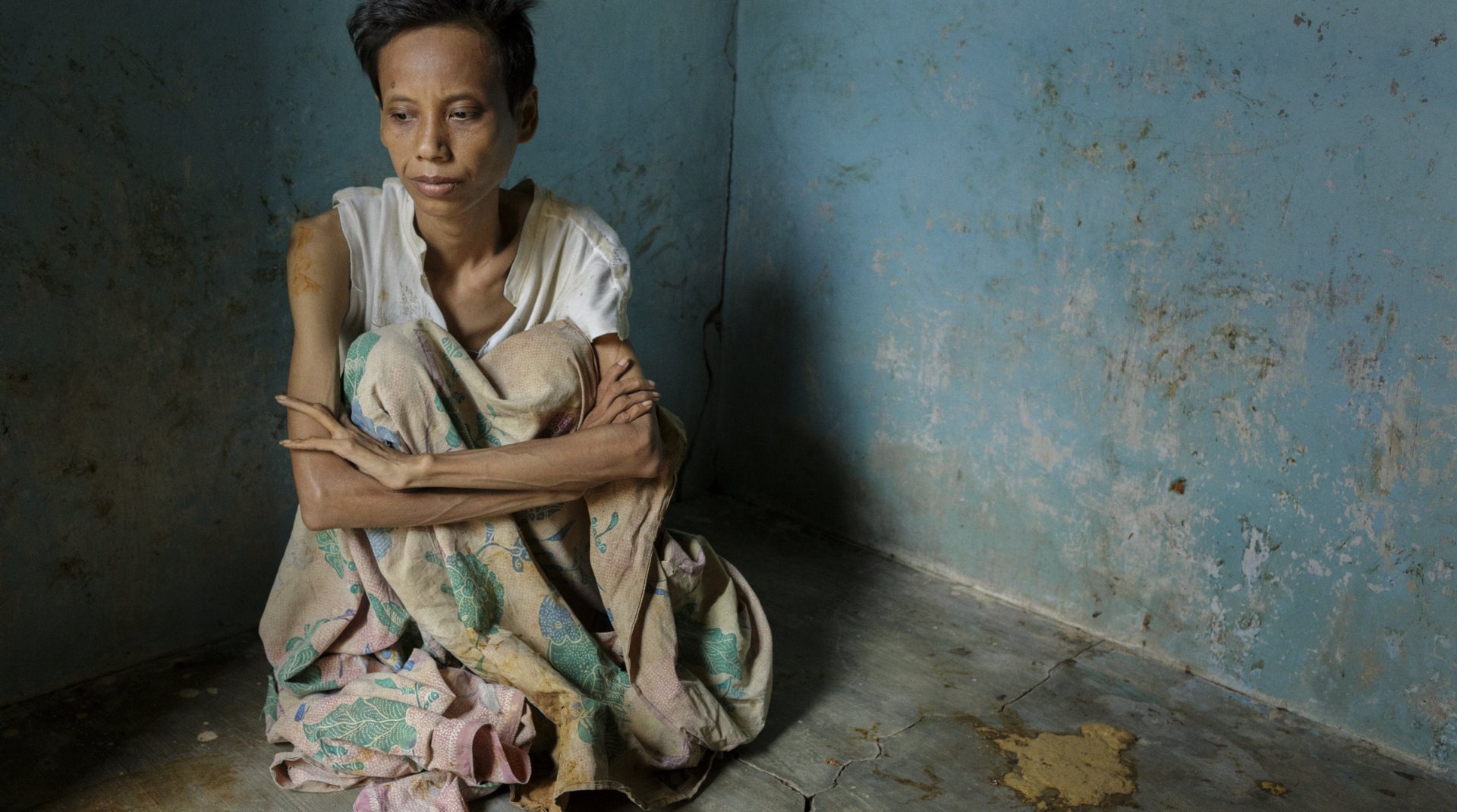
Disorder
Andrea Star Reese
Mental illness can be treated successfully.
From January 2011 until November 2012 I spent time photographing people in homes, shelters, schools and hospitals in Indonesia. The majority were either not receiving medication or had outdated treatments that were not the best available. Many had not been seen by a psychiatrist or diagnosed with mental illness, severe stress or any physical condition that might explain their symptoms and behavior.
An initiative begun in 2010 should have put an end to shackling – pasung – by 2014, but the Indonesian Government now admits that this goal will not be met. Effective regional programs are rare and underfunded. There are problems with access to care, the cost of treatment, and the lack of basic information available. Local and regional officials recognize that while existing private and licensed shelters provide inadequate service, they are still needed.
Differing figures published by the government report that Indonesia has 600 to 800 psychiatrists, half of them on the island of Java, and half of those are in the capital, Jakarta.
Some psychiatrists have only one diagnosis and one prescription. Needed prescription drugs are sometimes unavailable for months. Patient compliance and lack of family support also contribute to treatment failure.
Preview






Pasung, the Indonesian term meaning “restraint” or “restrained” refers to shackles, but can also include confinement, in a room, a shed or an animal pen. Pasung has traditionally been a widespread response to deal with mentally disturbed people, but was banned in 1977.
Families resort to pasung when they cannot afford care, fear medication, want to escape the stigma associated with mental illness, or if they feel the need to protect members of the family and community.
Throughout Indonesia, shamans and traditional healers are still the popular choice for mental health care. For Indonesians, it is better (and cheaper) to attribute abnormal behavior to spiritual weakness, spells, or possession by spirits.
Indonesia’s leading mental health care professionals are now beginning to acknowledge the cultural need for traditional and faith-based healers. Proposed reforms include providing psychiatrists and basic training in care for existing shelters, plus support workshops for regional clinics, primary care physicians, and nurses.
Andrea Star Reese






